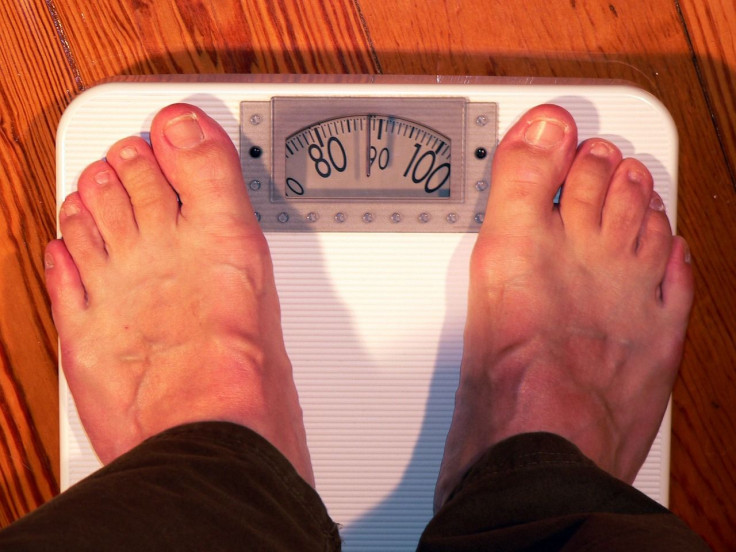Study: Fasting Isn't a Dieter's End All, Be All

Fasting to lose weight has gone mainstream.
Chances are if you don’t fast, you know someone who does. One popular form of fasting is called time-restricted eating, or intermittent fasting, and it’s used to lose or maintain weight loss. And while many who practice fasting are thrilled with the results, researchers aren’t entirely on board, as a new study, published in JAMA Internal Medicine, concluded.
Researchers from four states found that, although people who followed intermittent fasting did lose weight, so did the study participants who ate throughout the day.
Real-life experience
Seattle-based registered dietitian Ginger Hultin, spokesperson for the Academy of Nutrition and Dietetics and owner of ChampagneNutrition, told Medical Daily that she sees many clients who ask about intermittent fasting. “Anything that promises quick and easy weight loss will always be popular because of our societal pressures to be thin,” she said. “Each person's particular bodyweight is hugely complicated, depending on age, sex, stature, ethnicity, genetics, hormones, life stage, metabolism and more, so it's not surprising that there's a desire to find a more simple solution that works for a wide range of people.”
But for Jean Lotus, a 55-year-old journalist in Fort Collins, Colo., who first tried following a time-restricted diet in 2009, it’s an effective tool. She went from 160 pounds to 140 by mostly eating every other day. “It was really difficult,” she told Medical Daily. “But I kept the weight off for about four years. Then it started to creep back up again, mostly because I was so inactive.”
The study itself
Senior study author, Ethan Weiss, MD, a cardiologist at the University of California, San Francisco, had a particular interest in intermittent fasting. He had been practicing time-restricted eating for seven years, eating whatever he wanted between noon and 8 p.m., and then fasting until noon the next day, a total of 16 hours. However, after reading some studies on the effect of time-restricted eating on mice, he decided to do a study on people.
“It wasn’t hard to recruit,” he said in an email to Medical Daily. The researchers used an online platform, email, physical flyers and Facebook to find participants for the 12-week study. The participants were assigned to either the fasting group, who could eat anything they wanted for eight hours and fasted for 16 hours, or the control group, who ate throughout the day; 116 participants finished the study.
The results
Dr. Weiss was surprised at the results after 12 weeks, he wrote in a blog post. The people in the fasting group lost weight but so did the control group, although not quite as much. The researchers didn’t find other differences, such as sleep or energy, between the two groups – except for one. The group that fasted lost more lean mass, part of the muscle make-up, than the control group. It’s fat we want to lose, not lean mass.
“This study taught me a lot,” Dr. Weiss wrote. But, as he told Medical Daily, he plans on following up on this research.
For those who do fast
The structure of intermittent fasting speaks to some people, Ms. Hultin said. It might be appealing to someone who eats the majority of calories late into the night, for example. By stopping eating earlier in the evening, this could increase hunger at breakfast and help one get onto a regular schedule.
“However, the ultimate goal for me in helping my clients is working with each individual on their schedule and goals to come up with a sustainable, long-term plan that isn't restrictive or prescriptive and offers a lot of flexibility and freedom,” she said.
Ms. Lotus went back to intermittent fasting in January of this year because time-restricted eating was the only weight loss plan that worked for her. “After five pregnancies, I wanted to get back to my pre-preggo weight, and over 15 years I tried different things, including cutting carbs (Atkins). I also walked three miles almost every day at the YMCA for a year and didn't budge the scale. It was depressing, so I was very happy when intermittent fasting started showing real results quickly. I like things that are mentally simple but not necessarily easy."
But, Ms. Lotus pointed out that she also has become more physical. She made a commitment to stretching, strength training and exercise. “[A]ll of these are easier when I'm 20 lbs lighter.”
A word of caution
Any discussion about time-restrictive eating should include a word of caution, because of the effect it can have on your body physically and mentally.
“First, it can cause or exacerbate disordered eating or eating disorders,” Ms. Hultin said. “Consider your relationship to food and to your body before trying this or any other diets.” She also explained that people with issues related to blood sugar or blood pressure could be affected by such a diet.
“And especially if you're on certain medications, fasting can be really dangerous, so you must be sure to work closely with your registered dietitian, doctor and/or pharmacist.” Finally, not eating for long periods of time can actually slow your metabolism, so intermittent fasting could work against some people if losing weight is the goal.
Published by Medicaldaily.com



























